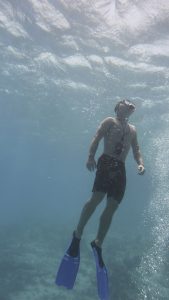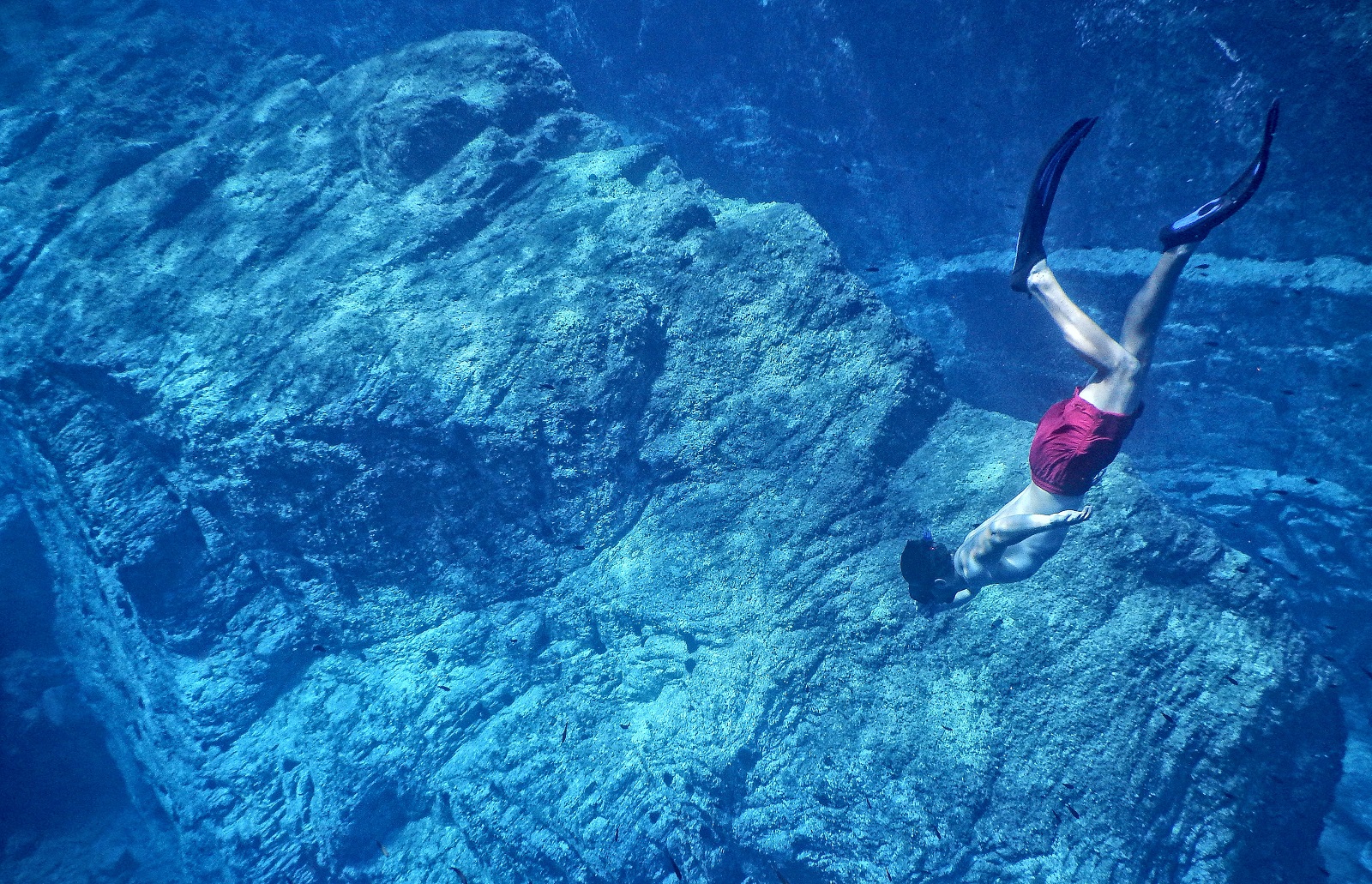For most mortal men, things like skydiving, high stakes poker, and deep sea scuba expeditions are enough to get them out of bed in the morning. Still, others need more. Enter: freediving. It’s one of the fastest growing watersports in the world, and it’s easy to see why. It’s simple to learn, exhilarating to master, and dangerous no matter how you slice it.
Technically, anyone who’s reasonably fit and comfortable swimming in open ocean can do it. The sport requires little equipment: a mask and (optionally) a snorkel, plus a pair of purpose-designed fins to propel you through the water quickly and with minimal effort. The main draw, of course, is an increase in freedom and agility underwater. By stripping away traditional scuba gear, freedivers are able to move faster, use less effort (and therefore oxygen), and get far closer to marine life. Where the bulk, bubbles, and hiss of a scuba diver’s regulator are enough to scare off even the heartiest marine mammals, freedivers can typically swim among them with ease.

What’s more: while traditional scuba divers are limited by the laws of physics as to how deep they can dive, freedivers are untethered from the same restraints. The current confirmed “no limits” world record for freediving stands at 700 feet. And the record’s holder, Austrian freediver Herbert Nitsch, has announced plans to smash through 1,000 feet later this year. It’s a staggering testament to the capability of the human body.
Which is surprising because, on paper, freediving might look like little more than glorified swimming. In reality, it’s so much more. Like scuba diving, mastering the skills and proper technique of freediving requires legitimate schooling. Instructional courses like those offered through I AM WATER Ocean Travel teach novice freedivers the science and practice behind breath-holding techniques, proper swim strokes, and — our words, not theirs — how not to drown. Courses begin in the classroom with proper book and lecture time, and end with half-day freedives in open ocean. Students are welcome to dive entirely within their comfort zone, or instructors will push them if they’re ready.
The company has even branched out to offer liveaboard freediving expeditions which are a great way to gain confidence underwater, and they’re growing in popularity. Their most popular trips take divers to some of the most exotic destinations in the world. Think: spotting humpback whales near Niue Island in the South Pacific, chasing jack fish and whale sharks in coastal Mexico, or gliding with giant manta rays in Bali. It’s difficult to imagine a more incredible learning vacation.


